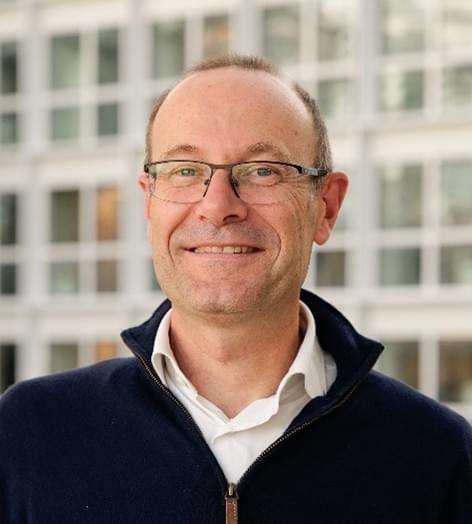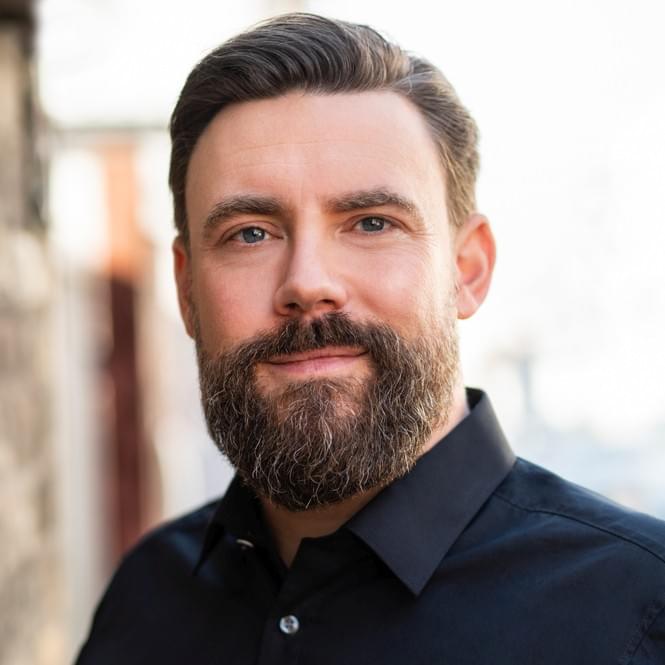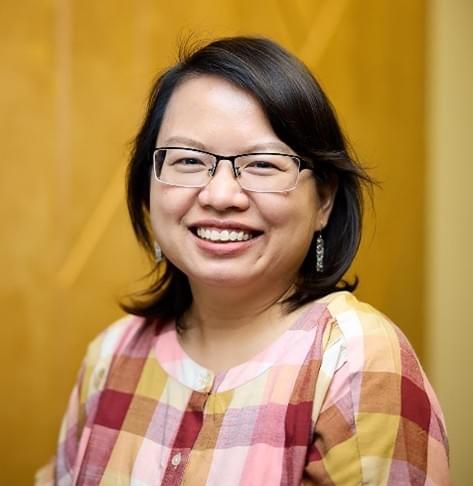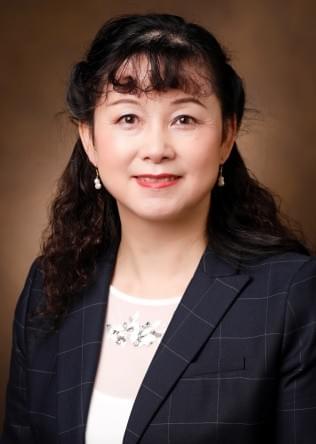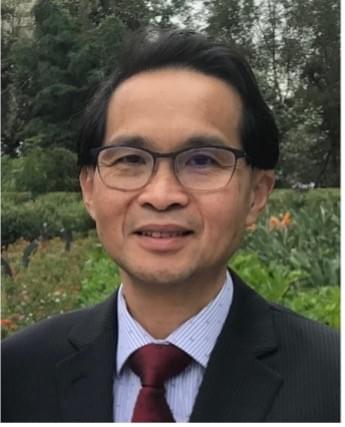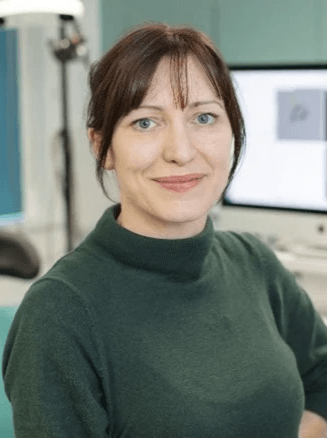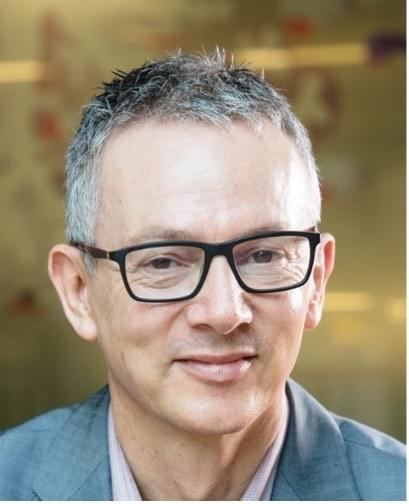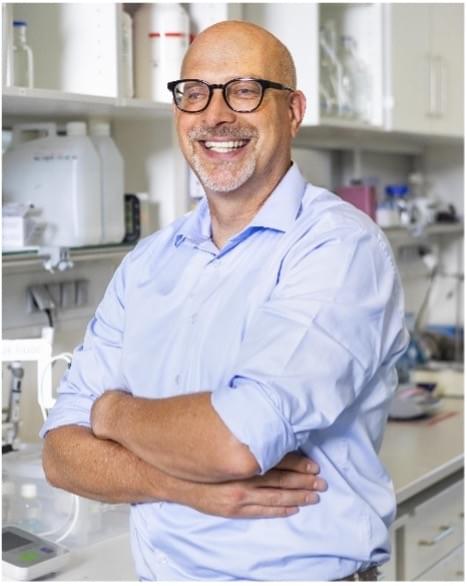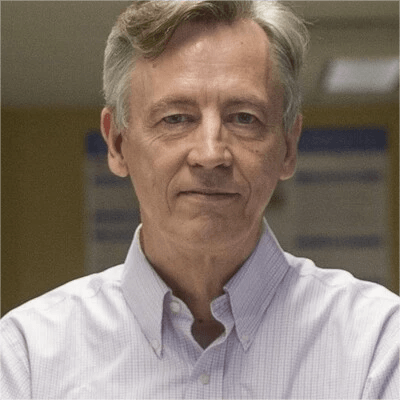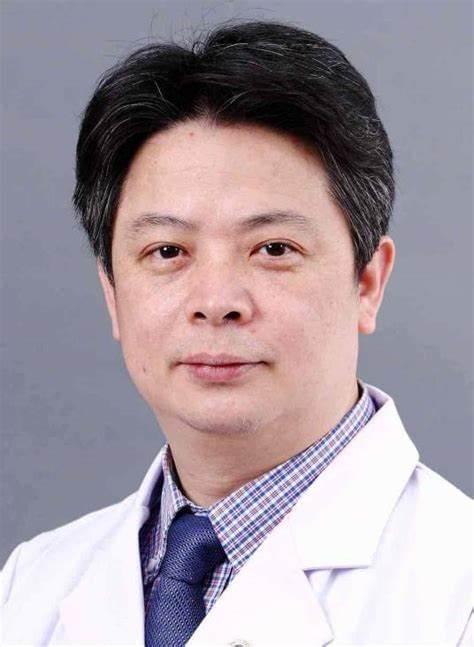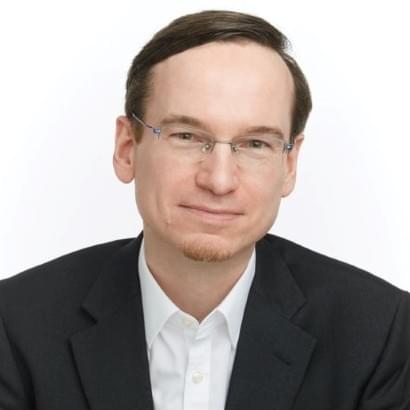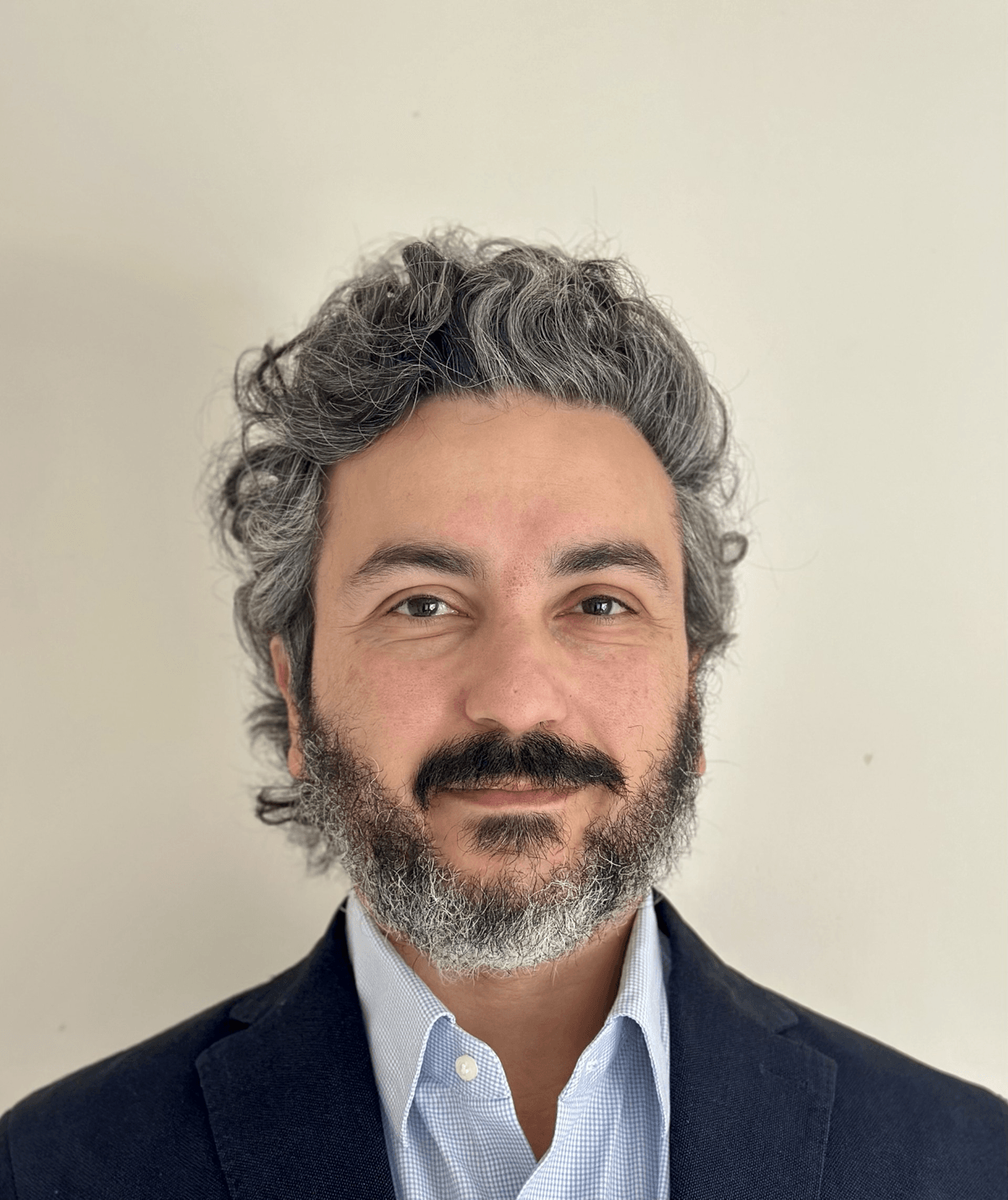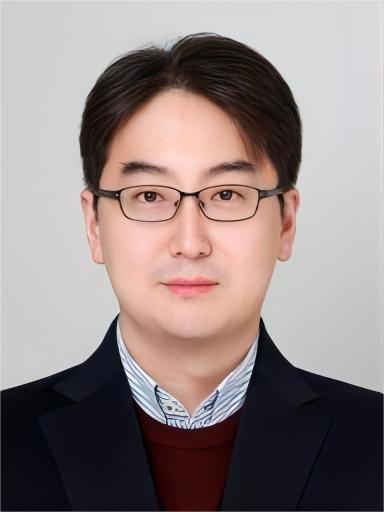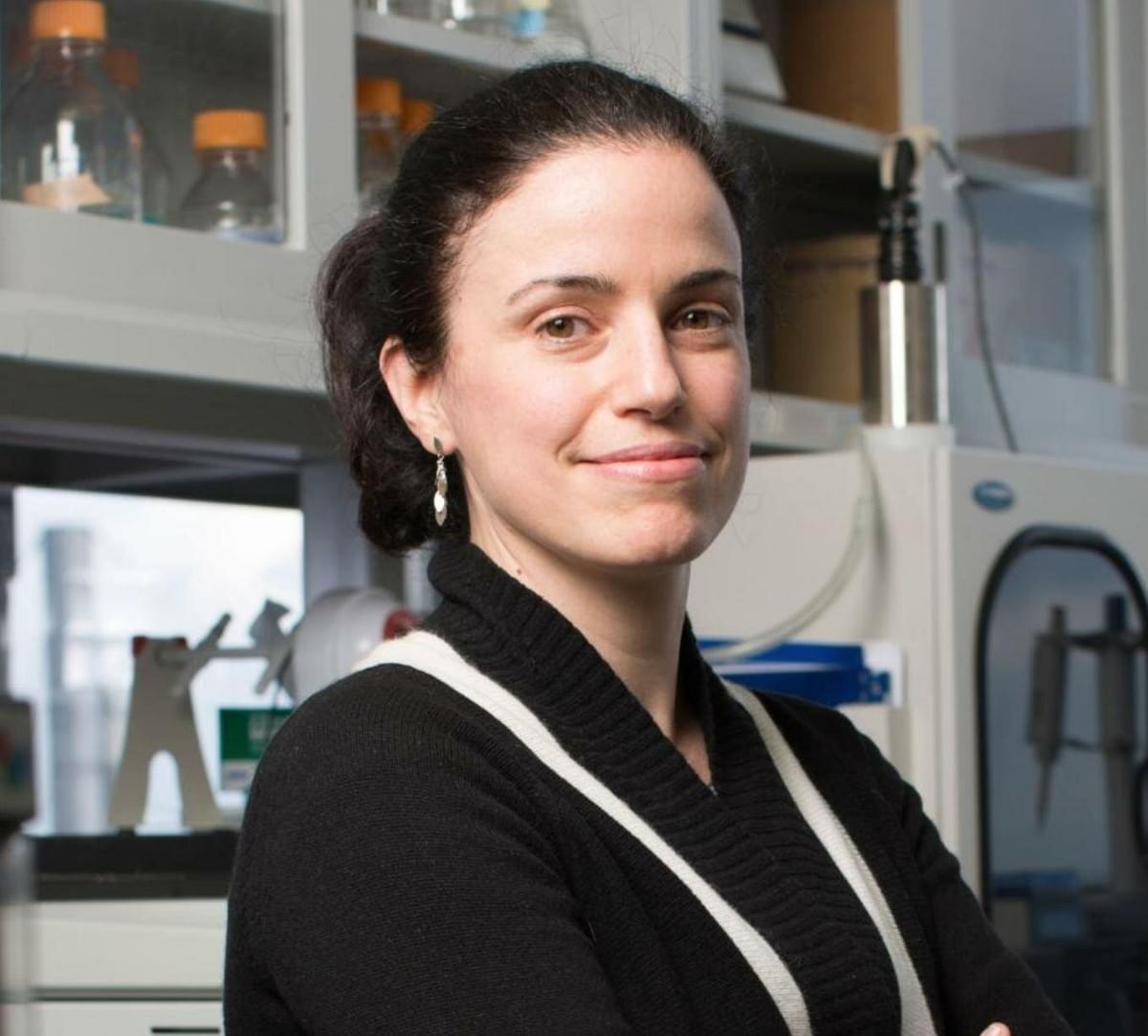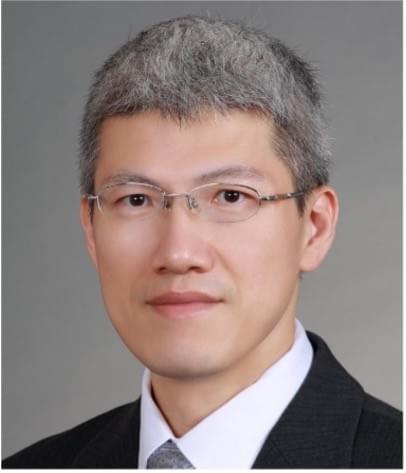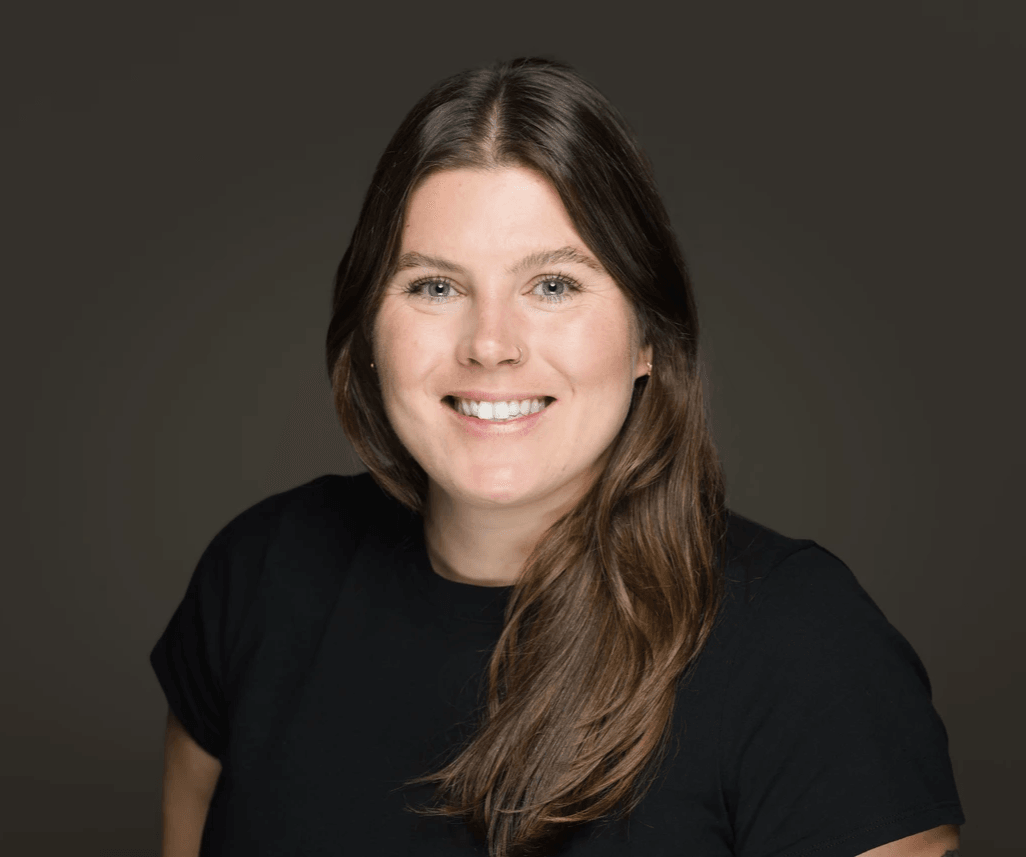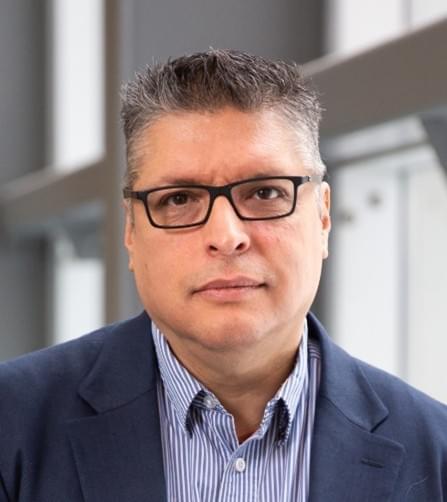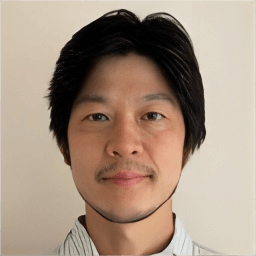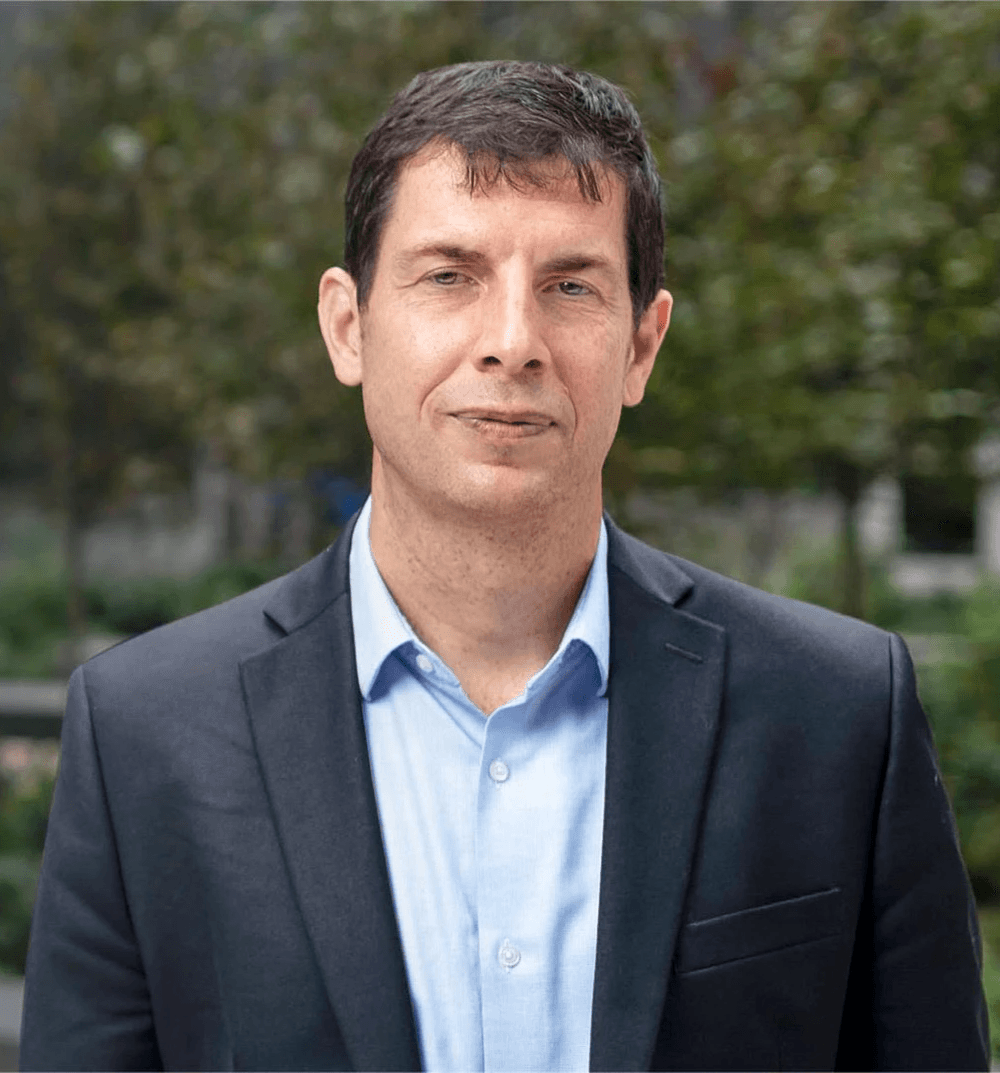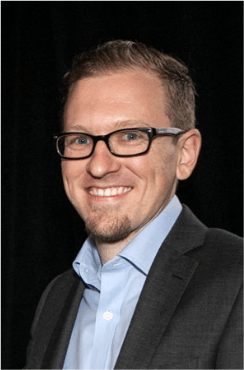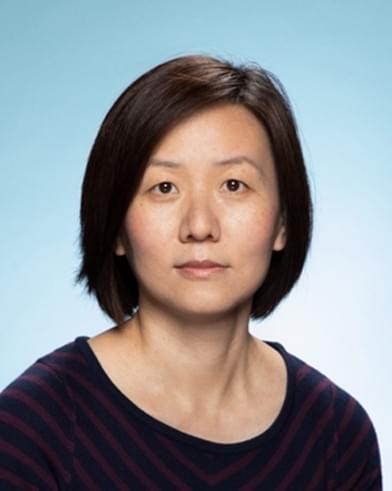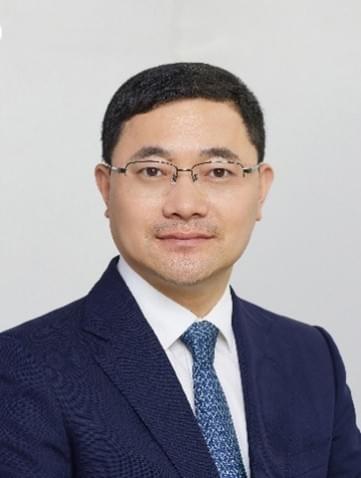
Speakers

Jean-François Aubry, France’s National Center for Scientific Research
Jean-Francois (Jeff) Aubry is a director of research at France’s National Center for Scientific Research (CNRS). He works at Physics for Medicine Paris (Paris, France) and is the scientific director of the Focused Ultrasound Foundation center of excellence in Paris.
His main research interests are MR-guided transcranial brain therapy and Neuronavigated transcranial ultrasound stimulation and is an expert in focusing ultrasound waves in complex media. Aubry holds five patents on adaptive focusing. He has been a consultant for Supersonic Imagine (Aix en Provence, France) and FUS Mobile (Alpharetta, GA, USA) and is a co-founder of SonoMind (Paris, France). He has given more than 60 invited talks at international conferences and published more than 100 papers in international scientific journals.
He has been president of the International Society for Therapeutic Ultrasound (2015 – 2018).

Til Ole Bergmann, Johannes Gutenberg University Medical Center
Prof. Dr. Til Ole Bergmann is a Professor of Neurostimulation and deputy head of the Neuroimaging Center (NIC) at the Johannes Gutenberg University Medical Center in Mainz, Germany, as well as a group leader at the Leibniz Institute for Resilience Research (LIR). Dr. Bergman investigates the function of neuronal oscillations in sleep and wakefulness, memory, and attention. The methodological focus of his research group (www.tobergmann.de) is on the simultaneous combination of non-invasive brain stimulation techniques such as transcranial magnetic, electric, and ultrasonic stimulation (TMS, tES, TUS) with neuroimaging (fMRI) and electrophysiology (EEG) and the development of novel approaches, such as real-time EEG-triggered brain state-dependent brain stimulation. Dr. Bergmann has published >50 papers on non-invasive brain stimulation (>7000 citations, h-index 36). He is the chairmen of the “Best Practice” working group of the International Transcranial Ultrasonic Stimulation Safety and Standards (ITRUSST) consortium (https://itrusst.org), co-organizer and program committee member of the Focused Ultrasound Neuromodulation (FUN) conference series (2022-2024), and chairmen of the “Regulatory and Ethical Issues” working group of the European Society for Brain Stimulation (ESBS). He further serves as senior editor at Imaging Neuroscience (https://www.imaging-neuroscience.org/) and on the editorial board of Brain Stimulation and has received the John Rothwell Award for excellence in non-invasive brain stimulation research in 2021. For publications see https://scholar.google.nl/citations?user=IVdjmvsAAAAJ

Hong Chen, Washington University in St. Louis
Dr. Chen works on advancing the field of Neurosonics by integrating breakthroughs in neuroscience and ultrasonics to develop noninvasive ultrasound technologies that deepen our understanding of brain function and transform the diagnosis and treatment of neurological diseases. She earned bachelor’s and master’s degrees in biomedical engineering from Xi’an Jiaotong University, followed by a PhD in bioengineering from the University of Washington, and completed postdoctoral training at Columbia University. She is currently a Professor in the Department of Biomedical Engineering at the McKelvey School of Engineering and the Department of Neurosurgery at the School of Medicine at Washington University in St. Louis. She serves on the Board of Directors for the International Society of Therapeutic Ultrasound, is a member of the IEEE International Ultrasonics Technical Committee, and contributes to the Acoustical Society of America's Biomedical Ultrasound Technical Committee. She is the chair of the 2026 Gordon Research Conference on In Vivo Ultrasound Imaging. Dr. Chen is a senior member of the National Academy of Inventors and was recently honored with the NIH Director’s Pioneer Award.

Limin Chen, Vanderbilt University
Li Min Chen, MD, PhD, is a neuroscientist by training who completed a prestigious Brown-Coxe Postdoctoral Fellowship at Yale University School of Medicine before joining the faculty at Vanderbilt in 2003, where she is now a tenured professor. Dr. Chen is an expert in functional and multiparametric MRI, and she has extensively studied pain and sensorimotor functions in preclinical models. Her research primarily focuses on uncovering the neural mechanisms underlying pain and touch, exploring the role of neural plasticity in functional and behavioral recovery following spinal cord injury (SCI), and developing innovative therapies aimed at pain relief and enhancing recovery in individuals affected by SCI. Dr. Chen’s lab adopts a multidisciplinary approach, incorporating advanced methods such as MRI, in vivo electrophysiology, tract tracing histology, and cutting-edge neuromodulation techniques, including electrical, optogenetic, and transcranial-focused ultrasound approaches, to investigate brain function and dissect brain circuits. For the past eight years, Dr. Chen has collaborated with Dr. Charles Caskey on developing an MR-guided focused ultrasound neuromodulation system for chronic pain relief. Dr. Chen is actively involved in several professional organizations, including the Society for Neuroscience, the International Society for Magnetic Resonance in Medicine, the International Association for the Study of Pain, and the Organization for Human Brain Mapping.

Robert Chen, University of Toronto
Professor Robert Chen undertook medical training at University of Cambridge and Guy’s Hospital, London, and received his MA and medical (MBBChir) degrees from the University of Cambridge. He undertook Neurology residency at the University of Western Ontario (Canada), and fellowship at the National Institute of Neurological Disorders and Stroke in Bethesda, Maryland, USA. He is currently Professor of Medicine (Neurology) at University of Toronto, Senior Scientist at Krembil Research Institute, Editor-in-Chief of Clinical Neurophysiology and Associate Editor of Movement Disorders. His clinical and research interests include transcranial magnetic and ultrasound stimulation, neurophysiology and treatment of movement disorders, mapping of brain connectivity using functional magnetic imaging and electroencephalography, electromyography and neurophysiological assessment of the respiratory system. He has published over 420 research papers with H-index of 116 (Google Scholar), a book on Transcranial Magnetic Stimulation and edited two volumes of Handbook of Clinical Neurology on Respiratory Neurobiology in 2022.

Elsa Fouragnan, University of Plymouth
Elsa Fouragnan is a Professor in Neuroscience and the Director of the Brain Research Imaging Centre at the University of Plymouth, UK. Her work focuses on the pioneering use of transcranial ultrasound stimulation in humans, particularly in brain circuits related to decision making and learning. Her career transitioned from biomedical engineering to neuroscience, with postdoctoral fellowships at Glasgow and Oxford. In 2018, she founded her lab to study neuroplasticity induced by focused ultrasound in brain circuits mediating adaptive and dysfunctional decision making. After proof of concepts studies showing that ultrasound can induced neuroplasticity in humans, she is now bringing this technology forward to apply it to mental health disorders, particularly Obsessive Compulsive Disorder and Alcohol Use Disorder. Her lab organises annual workshops to train academics and non-academics to use the technology and contributes to ITRUSST, a consortium advancing ultrasound for neuromodulation. Elsa is also a UKRI Future Leader Fellow and an ARIA R&D creator.

Jürgen Götz, The University of Queensland
Professor Jürgen Götz is the Lesleigh Green - Bill and Nancy Green Endowed Chair in Dementia Research and inaugural Director of the Clem Jones Centre for Ageing Dementia Research (University of Queensland). Professor Götz studied biochemistry in Switzerland and earned his PhD in immunology with Nobel Laureate Köhler in Germany. After postdoctoral work at UCSF and at Novartis, he became a group leader in Zürich, before moving to the University of Sydney in 2005, and then to the University of Queensland (Queensland Brain Institute) in 2012. A major focus of his laboratory is to gain insight into how tau and amyloid both separately and synergistically contribute to Alzheimer’s disease. In recent years, the laboratory has started to develop therapeutic ultrasound into a treatment modality for Alzheimer’s disease and other brain diseases, both by transiently opening the blood-brain barrier and as a neuromodulatory tool. Professor Götz has published more than 230 papers in leading journals including Cell, Science and Neuron, and has authored many authoritative reviews in the Nature Reviews journal family.

Andreas Herrmann, RWTH Aachen University
Andreas Herrmann studied chemistry at the University of Mainz (Germany). From 1997 to 2000 he pursued his graduate studies at the Max Planck Institute for Polymer Research in Mainz, Germany, in the group of Prof. Klaus Müllen. Then he worked as a consultant for Roland Berger Management Consultants in Munich (2001). In the years 2002 and 2003, he returned to academia as a postdoctoral fellow working on protein engineering with Prof. Don Hilvert at the Swiss Federal Institute of Technology, Zurich. In 2004, he was appointed as a head of a junior research group at the Max Planck Institute for Polymer Research. From 2007 to 2017 he held a position as full professor at the Zernike Institute for Advanced Materials at the University of Groningen, the Netherlands, where he headed the chair for Polymer Chemistry and Bioengineering. Since June 2017, he is scientific board member of the DWI – Leibniz Institute for Interactive Materials in Aachen, Germany, and fills a position as full professor at RWTH Aachen University for Macromolecular Materials and Systems. In 2018, he became vice-director of the DWI – Leibniz Institute and director in 2023.

Kullervo Hynynen, University of Toronto
Dr. Hynynen earned his Ph.D. from the University of Aberdeen in the United Kingdom and began his academic career as a faculty member at the University of Arizona. In 1993, he joined the faculty of Harvard University and Brigham and Women's Hospital in Boston. In 2006, Dr. Hynynen was appointed Senior Scientist and Director of the Physical Sciences Platform at Sunnybrook Research Institute. He assumed the role of Vice President of Research and Innovation at Sunnybrook, Toronto, Canada in January 2020. Dr. Hynynen is a Professor in the Department of Medical Biophysics at the University of Toronto, with a cross-appointment in the Institute of Biomedical Engineering (BME). He holds the Temerty Chair in Focused Ultrasound Research and serves as Co-Director of the Focused Ultrasound Centre of Excellence at Sunnybrook Health Sciences Centre. Dr. Hynynen is also the founder and Co-Executive Director of INOVAIT, a nationwide network focused on advancing the use of artificial intelligence in image-guided therapy through training, networking, and funding. With over 450 peer-reviewed publications in the field of ultrasound therapy, he is internationally recognized as a leader in both basic and clinical research. He holds approximately 30 patents or patent applications and has been awarded numerous research grants and contracts. His intellectual property has been licensed by several companies, including two he founded. Notably, the focused ultrasound technology developed by InSightec, now in clinical use for essential tremor treatments, originated from Dr. Hynynen's laboratory.

Rongcai Jiang, Capital Medical University Xuanwu Hospital
Professor Jiang is a neurosurgical critical care provider who serves as Deputy Chairman of the Department of Neurosurgery and Head of the Neurosurgical ICU at Xuanwu Hospital, Capital Medical University. He undertook medical and scientific research training at Changzheng Hospital, Navy General Hospital (both affiliated with the Second Military Medical University), and Tianjin Medical University General Hospital. He also conducted research at the MD Anderson Cancer Center. Since 2011, his focus has been on brain trauma and neurocritical care. He specializes in treating severe traumatic brain injury and patients in persistent coma. Personally, he has treated >1,500 chronic subdural hematoma (CSDH) patients (from all Chinese provinces except Taiwan, Macau, and Tibet), achieving a ~90% cure rate. He is the primary inventor of the novel "statin + corticosteroid" therapy protocol for CSDH (patent holder) and a pioneer in using cervicocephalic lymphatic drainage as adjuvant therapy for CSDH. He was the first to confirm that low-intensity pulsed ultrasound (LIPUS) could elevate circulating blood pressure during shock resuscitation.

Marcus Kaiser, University of Nottingham
Marcus Kaiser is Professor of Neuroinformatics at the University of Nottingham. His aimit to develop ultrasound interventions for cognitive improvements in severe mental health (depression and schizophrenia). He is author of 'Changing Connectomes' (https://mitpress.mit.edu/books/changing-connectomes), PI for the closed-loop neuromodulation for mental health MRC programme grant (https://www.nottingham.ac.uk/news/new-research-will-lead-to-improved-brain-function-for-patients-with-a-range-of-mental-health-conditions), and co-director of the Centre for Neurotechnology, Neuromodulation, and Neurotherapeutics (https://www.nottingham.ac.uk/science/research/n3centre/n3centre.aspx).

Nima Khalighinejad, University of Oxford
Nima Khalighinejad is a Research Fellow in the Department of Experimental Psychology at the University of Oxford. He studied medicine before completing an MSc in Neuroscience and a PhD in Cognitive Neuroscience at UCL, where he investigated voluntary action in humans. In 2017, he joined Prof. Matthew Rushworth’s lab at Oxford as a postdoctoral researcher, using transcranial ultrasound to study the causal role of primate brain activity in decision-making. Since 2021, he has been an independent research fellow at the Department of Experimental Psychology and the Wellcome Centre for Integrative Neuroimaging. In autumn 2025, he will establish his own research group at Oxford, exploring the role of neuromodulatory systems in cognition and behaviour in both humans and non-human primates.

Hyungmin Kim, Korea Institute of Science and Technology
Hyungmin Kim received his B.S. and M.S. degrees in Mechanical Engineering from Seoul National University (Seoul, Korea) in 1998 and 2001, respectively. He then entered the medical industry and spent six years developing medical imaging software and surgical navigation systems at Cybermed, Inc. (Seoul, Korea). Later, he completed his Ph.D. in Biomedical Engineering from the University of Bern (Bern, Switzerland) in 2011, while working as a research scientist at the Institute of Surgical Technology and Biomechanics (Bern, Switzerland). He then worked as a postdoctoral fellow at the Department of Radiology, Harvard Medical School (Boston, USA). He is currently a principal research scientist at the Bionics Research Center, Korea Institute of Science and Technology (Seoul, Korea), and a professor at the Division of Bio-Medical Science & Technology, University of Science and Technology. His current research interests are focused ultrasound, image-guided therapy, and brain-machine interface.

Elisa E. Konofagou, Columbia University
Elisa Konofagou is the Robert and Margaret Hariri Professor of Biomedical Engineering and Professors Radiology and Neurosurgery as well as Director of the Ultrasound and Elasticity Imaging Laboratory at Columbia University in New York City. Her main interests are in the development of novel imaging, theranostic and therapeutic ultrasound methods for the advancement of therapeutic ultrasound. Elisa has co-authored over 320 published articles in the aforementioned fields. Elisa is a Member of the National Academy of Medicine (US), an Elected Fellow of the International Society of Electrical and Electronic Engineering (IEEE), the American Institute of Biological and Medical Engineering (AIMBE) and the Acoustical Society of America (ASA).
Elisa is recipient of the CAREER award by the National Science Foundation (NSF), the Nagy award by the National Institutes of Health (NIH), the Technological Achievement Award by the IEEE Engineering in Medicine and Biology society (EMBS), the Carl Hellmuth Hertz Ultrasonics Award by the IEEE Society in Ultrasonics, Ferroelectrics and Frequency Control (UFFC), the Janette and Armen Avanessians Diversity Award and Faculty Service Award by Columbia university and the Elisabeth Papazoglou Inspired Leadership Award by Drexel university as well as additional recognitions by the American Heart Association, the Acoustical Society of America, the American Institute of Ultrasound in Medicine, the American Association of Physicists in Medicine, the Wallace H. Coulter foundation, the Bodossaki foundation, the Society of Photo-optical Instrumentation Engineers (SPIE) and the Radiological Society of North America (RSNA). Elisa also serves as the current President of the International Society of Therapeutic Ultrasound.

Hao-Li Liu, National Taiwan University
Dr. Hao-Li Liu received the Ph.D. degrees in Electrical Engineering, National Taiwan University, Taiwan in 2003, and finished his post-doc training in Brigham & Womens Hospital, Harvard Medical School, with Dr. Kullervo Hynynen in 2005. He is currently the Professor of Department of Electrical Engineering, National Taiwan University, Taipei, Taiwan. Dr. Liu is currently working on research topic in ultrasound non-thermal therapy and its treatment planning/ simulation including blood-brain barrier opening, focused ultrasound neuromodulation, and ultrasound phased array design. Dr. Liu has published over 140 SCI ultrasound-related papers, over 40 worldwide patents been filed in areas of biomedical use of therapeutic ultrasound. He received the 2015 Frederic Lizzi Award from the International Society for Therapeutic Ultrasound (ISTU) for recognizing his contribution in preclinical advances of brain therapy application. He previously also joined as the board member of ISTU (term 2015-2018). He is currently joining the NaviFUS Inc. (dedicated to promote a clinical purposed neuronavigation-guided transcranial focused ultrasound device) as technical consultant to support the ongoing BBB-opening and epilepsy clinical trials conducted in Taiwan.

Charlotte Luff, Stanford University
Charlotte Luff is a postdoctoral researcher in the de Lecea Lab at Stanford University, where she studies the modulation of sleep and addiction-related behaviors using non-invasive neuromodulation techniques, including transcranial focused ultrasound. Her research focuses on uncovering the biophysical mechanisms and brain dynamics underlying these techniques, with the goal of improving their precision and efficacy. Charlotte completed her Ph.D. in the Interventional Systems Neuroscience Lab of Dr. Nir Grossman at Imperial College London, with a year as a visiting Ph.D. student in the lab of Professor Ed Boyden at MIT, where she investigated the biophysical basis of temporal interference (TI) brain stimulation using electrophysiology and computational modeling. She holds a B.Sc. in Biomedical Science from King’s College London and an M.Res. in Experimental Neuroscience from Imperial College London.

Samuel Pichardo, University of Calgary
Samuel Pichardo obtained his Ph.D. in Imaging and Systems in 2005 from the INSA-Lyon, France, while conducting his research at the INSERM LabTau laboratory. From 2006 to 2008, he worked as a Postdoctoral fellow at Sunnybrook Research Institute and from 2008 to 2017, Samuel worked as a scientist in the Thunder Bay Regional Health Research Institute and was an adjunct professor at Lakehead University. He joined the University of Calgary in 2017, and he is currently an Associate Professor in the Departments of Radiology and Clinical Neurosciences, Cumming School of Medicine, and as a member of the Hotchkiss Brain Institute. His area of research concentrates in the exploration of Focused Ultrasound (FUs) as a non-invasive method for the characterization of neurological functions and the treatment of brain disorders. His research activities include numerical studies for sound propagation through the skull, characterization of transcranial ultrasound propagation, development of new ultrasound technology, new Magnetic Resonance-guided techniques for the targeting and monitoring of FUs, and clinical translation of FUs applications.

Masafumi Shimojo, National Institutes for Quantum Science and Technology
Dr. Masafumi Shimojo's research interest is to understand the pathophysiological cascade of neurological disorders represented as Alzheimer’s disease. He has studied the molecular and cellular mechanisms of inflammation, circuit dysfunction, and neurodegeneration in the brain of animal models utilizing a variety of imaging modalities. Recently, he also aims to develop in vivo neuromodulation techniques for future therapeutic applications.

Shy Shoham, NYU Langone Health
Shy Shoham is a Professor of Neuroscience and of Ophthalmology at NYU School of Medicine, and co-director of the NYU Tech4Health institute. His lab develops acoustic, photonic and computational tools for bidirectional neural interfacing, and is exploring translational applications of transcranial ultrasound stimulation with clinical collaborators. He holds a Physics BSc (Tel-Aviv University), a PhD in Bioengineering (University of Utah) and was a Lewis-Thomas postdoctoral fellow at Princeton University. He is a Fellow of SPIE and serves on the editorial boards of Journal of Neural Engineering and of Neurophotonics and has co-edited the Handbook of Neurophotonics.

Bradley Treeby, University College London
Bradley Treeby is CEO of NeuroHarmonics, a spin-out company he co-founded in 2024, and Honorary Professor of Biomedical Ultrasound at University College London (UCL). His research sits at the interface of ultrasound technology and human neuroscience. Prof. Treeby’s work focuses on advancing ultrasound neurotech for precision neuromodulation and developing models of ultrasound wave propagation in the human body. He has led multidisciplinary teams developing novel hardware platforms for targeted ultrasonic applications and created k-Wave, a widely-used open-source acoustics toolbox. At NeuroHarmonics, he's working to develop non-invasive ultrasound technology that can safely modulate specific brain circuits, with applications spanning therapeutic interventions for neurological conditions and brain-computer interaction.

Chen Yang, Boston University
Prof. Yang obtained her M Phil in Chemistry from HKUST in 2000 and her doctoral degree in Chemistry from Harvard University in 2006. She worked as an associate in McKinsey & Co. She worked in Purdue University Department of Chemistry and Department of Physics as Assistant Professor and Associate Professor. Dr. Yang is currently Professor in Department of Electrical and Computer Engineering and Department of Chemistry at Boston University. She is also Associate Chair for Master program in Department of Electrical and Computer Engineering at BU.
Prof. Yang’s current research isfocusing on novel photonics and bioelectronics materials and devices for non-genetic neuromodulation. Her research has been published in high profile journals, including Science, Nature, Nature communication, and featured in SPIE Bio Hot Topic PlenarySession in 2023. She was an NSF Career Awardee in 2008 and a AIMBE fellow since 2023.

Hairong Zheng, Nanjing University
Hairong Zheng received his Ph.D degree in mechanical engineering from the University of Colorado at Boulder in 2006. He then joined the University of California, Davis, initially as a postdoctoral fellow, before becoming a project scientist in the Department of Biomedical Engineering. Currently, Dr. Zheng is an academician at the Chinese Academy of Sciences, serves as Vice President of Nanjing University. His research primarily focuses on medical imaging technology and instrumentation systems, with a particular emphasis on MRI and biomedical ultrasound. Dr. Zheng is the recipient of the National Science Fund for Distinguished Young Scholars and has led several major scientific research projects. Additionally, he holds the position of director at the National Innovation Center for Advanced Medical Devices, is a member of the National Manufacturing Powerhouse Strategy Advisory Committee, and acts as a vice-chairman of the Chinese Society for Biomedical Engineering. For his contributions, Dr. Zheng has been honored with the National Science and Technology Progress First Class Award.
This conference is co-organized by:



珠海市神经科学学会
Zhuhai Society For Neuroscience

Privacy Policy Statement | Terms of Use
Copyright © 2025 The Hong Kong Polytechnic University. All Rights Reserved.
